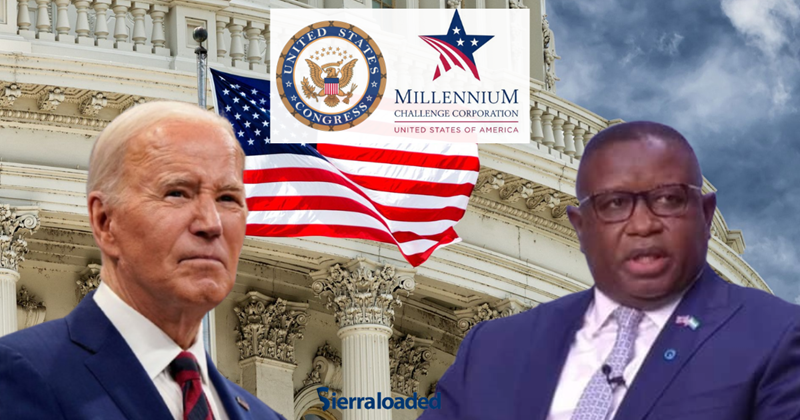The Millennium Challenge Corporation (MCC) compact awarded to Sierra Leone represents a significant financial and developmental opportunity for the country.
The MCC is a U.S. government agency that provides time-limited grants to developing countries to promote economic growth, reduce poverty, and strengthen democratic governance. In 2023, Sierra Leone became eligible for a compact, marking a pivotal moment in the country’s development efforts. The MCC compact is focused on improving water and electricity infrastructure, governance, and service delivery, especially in Freetown, the capital. In the short term, the funds will be directed toward improving these critical areas, which are essential for public health and economic activity.
However, misuse of the MCC funds or failure to meet the attached conditions could harm Sierra Leone’s international reputation. This would reduce confidence from other potential donors and investors. making it harder for the country to secure future development aid or investment.
If the MCC compact fails due to mismanagement or corruption, the public could lose faith in the government’s ability to manage resources. This could lead to increased political instability, protests, and a rise in opposition to the government, which would hinder future development efforts.
If the funds are misused or if the projects are not completed as planned. Sierra Leone will continue to suffer from unreliable infrastructure
This would have a lasting negative impact on the economy, as the country would miss a key opportunity to improve the basic services that are essential for development.
On the bright side the implementation of infrastructure projects wil likely create jobs, both in construction and in sectors supporting these initiatives. This will provide an immediate economic stimulus reducing unemployment and injecting capital into local businesses.
The awanling of the MCC compact signals that Sierra Leone is making progress in governance and economic reforms. This will likely enhance investor confidence, attracting foreign and local investment- in other sectors.
With the successful implementation of projects, the quality and reliability of electricity and water supply will improve. This is critical for both urban and rural communities, improving living conditions, reducing waterborne diseases, and increasing productivity.
Reliable access to water and electricity is foundational for economic growth. In the medium term, the MCC compact’s projects will support industries such as manufacturing, agriculture, and small businesses, all of which depend on consistent energy and water supply.
The MCC compact also emphasizes governance reforms. In the medium term, the compact should improve transparency and accountability in public service delivery. This could reduce corruption and lead to more efficient and effective governance, fostering public trust in institutions.
Long-term, the improvements in infrastructure will lay the groundwork for sustained economic growth. Access to reliable water and electricity will allow businesses to expand, attract more foreign investment, and improve the country’s overall economic competitiveness.
The ultimate goal of the MCC compact is poverty reduction. Over time, the improved infrastructure and governance reforms should contribute to higher incomes, better public health, and improved educational outcomes, which will significantly lower the country’s poverty levels.
Over the long term, the reforms tied to the MCC compact, particularly in governance, will strengthen the country’s institutions. This could help Sierra Leone become more resilient to future challenges, such as political instability or economic shocks.
To fully benefit, Sierra Leone must ensure transparency. accountability, and good governance in the management of the compact. Failure to do so could undermine not only the MCC projects but also the country’s broader development goals.











